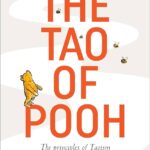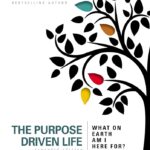Welcome to Thinkers Books, your hub for insightful literature that stimulates thought and promotes personal growth. Today, we’re exploring a book that offers a transformative perspective on success, failure, and personal development: ‘Mindset: The New Psychology of Success’ by Carol S. Dweck. This work is more than just a book; it’s a catalyst for a mindset makeover.
Carol S. Dweck, a renowned psychologist at Stanford University, shares her pioneering research on our beliefs about success in ‘Mindset’. She demonstrates how our mindset can profoundly affect our lives, from personal relationships to professional achievements.
Central to Dweck’s thesis in ‘Mindset’ is the contrast between two types of mindsets: fixed and growth. Individuals with a fixed mindset perceive their intelligence and abilities as static, while those with a growth mindset believe in the capacity for development and improvement. The crucial difference lies in how these two mindsets shape our responses to challenges and failures.
Dweck employs compelling real-life examples to illustrate the power of these mindsets. Consider the story of basketball legend Michael Jordan, who, despite initially not making his high school team, used this setback to fuel his determination. Or consider Lou Gerstner, the CEO of IBM, who transformed the company’s fortunes by shifting its culture from a fixed to a growth mindset.
Importantly, Dweck provides practical techniques for cultivating a growth mindset. A notable method is the power of ‘yet.’ By adding ‘yet’ to a statement like, ‘I’m not good at math,’ we open up the possibility of growth and improvement. It’s remarkable how such a small word can change the entire meaning of a sentence and encourage personal growth.
Let’s delve into my top five learning points from the book:
- Understanding Mindsets: Recognizing whether you have a fixed or growth mindset is the first step towards personal transformation. A fixed mindset sees abilities and intelligence as static traits, limiting growth. In contrast, a growth mindset perceives abilities as malleable and capable of development through effort and perseverance. By understanding your existing perspective, you can consciously work towards cultivating a growth mindset that embraces challenges and values effort.
- Embrace Challenges: People with a growth mindset see challenges not as insurmountable obstacles but as opportunities for growth and self-improvement. They understand that stepping out of their comfort zone is integral to personal and professional development. Embracing challenges rather than avoiding them fosters resilience, encourages learning, and propels you towards achieving your goals.
- Effort is the Pathway to Mastery: A growth mindset values effort to improve and achieve mastery. It understands that talent alone isn’t enough to ensure success; consistent effort and hard work are equally important. This perspective encourages you to put in the necessary work to enhance your skills and achieve your goals, emphasising the process over the result.
- Learn from Criticism: Constructive criticism is a powerful tool for learning and improvement. A growth mindset does not shy away from feedback; instead, it views criticism as valuable input that can highlight areas for improvement. Rather than taking it personally, it encourages you to learn from your mistakes, adjust your strategies, and grow from the experience.
- Celebrate Others’ Success: A growth mindset also involves celebrating and learning from the success of others. Instead of feeling threatened by other people’s achievements, it sees their success as an inspiration and motivation for personal growth. This perspective fosters community, encourages mutual gain, and promotes a healthy and supportive environment.
‘Mindset’ stands out for its potential to transform one’s approach to life. Its simplicity, backed by rigorous research, makes it applicable to everyday changes, leading to better, more fulfilling lives.
Personally, ‘Mindset’ has been an enlightening journey. It has shifted how I approach challenges and setbacks and changed my view of effort and success. It’s a continuous journey, going from a fixed to a growth mindset, but every step is worth it, and I believe it can work wonders for you, too.
As we conclude our exploration of ‘Mindset’, remember this powerful insight from Dweck: “In the fixed mindset, everything is about the outcome. If you fail or are not the best, it’s all been wasted. But in the growth mindset, the journey is the reward, even when things don’t go as planned.” So let’s cherish the journey, the learning, the growth. That’s where the real magic happens. Until next time, keep thinking, keep growing.







